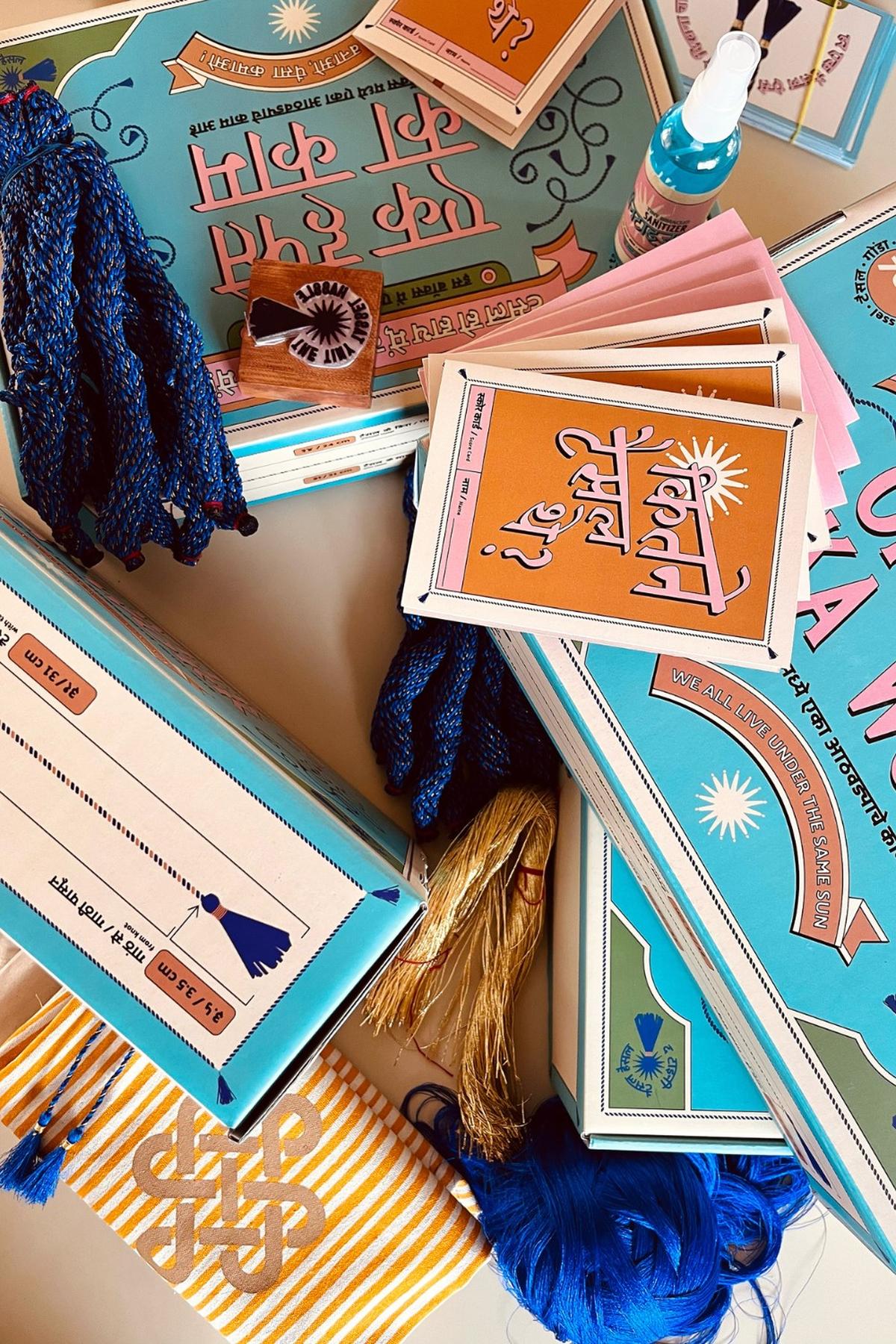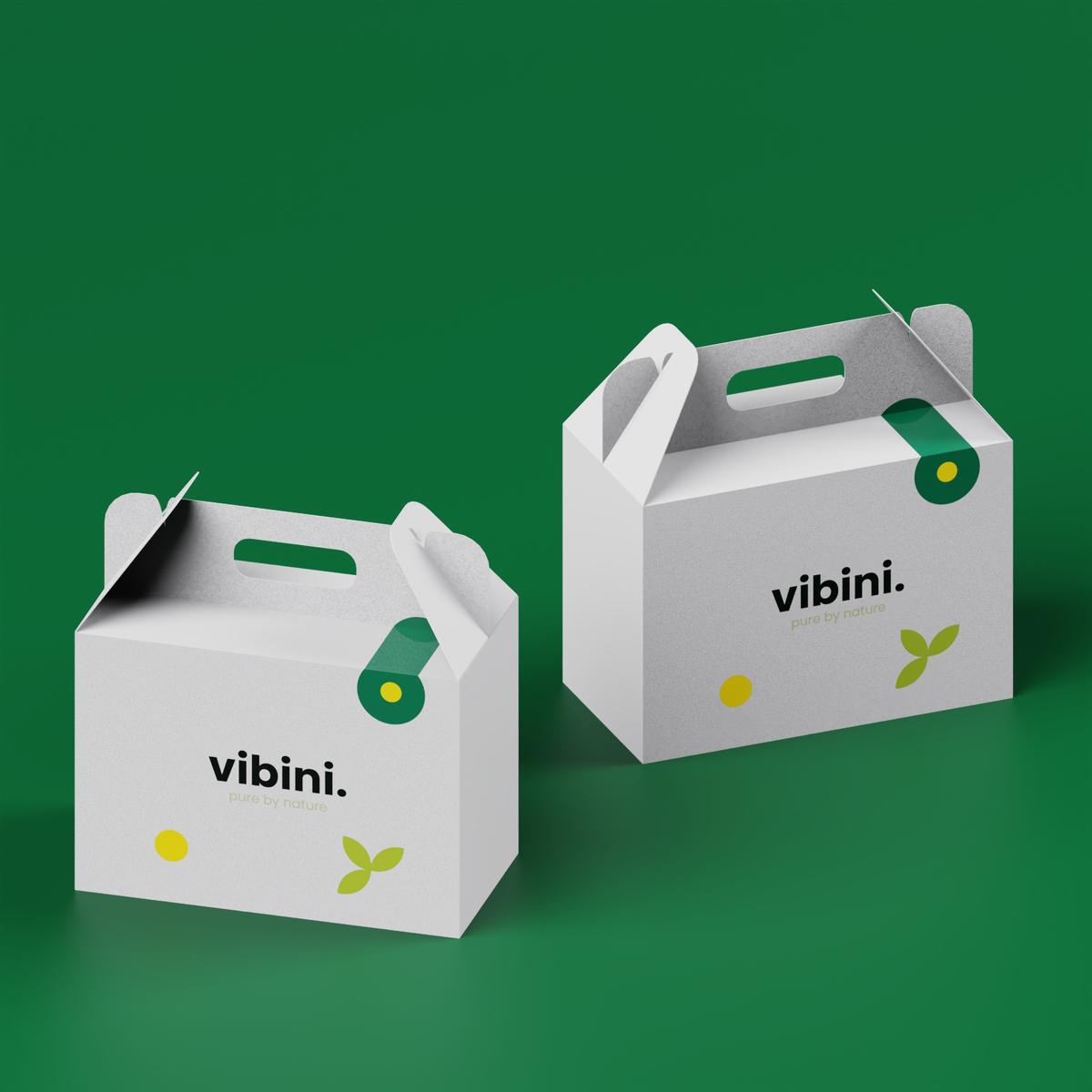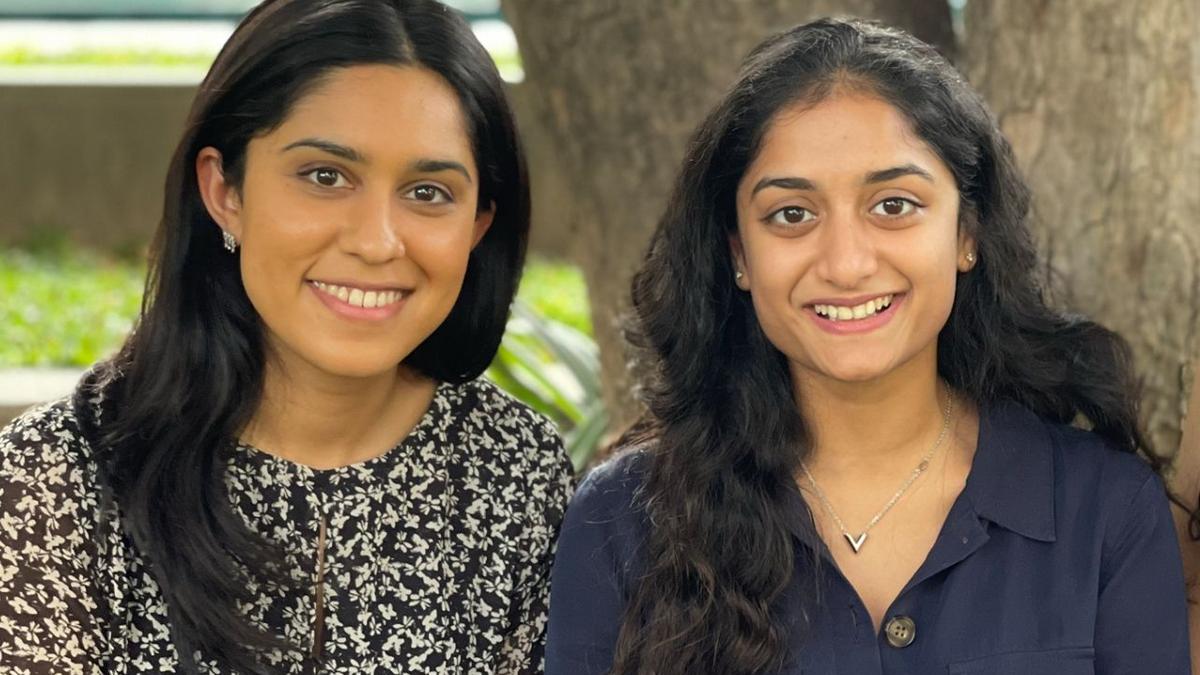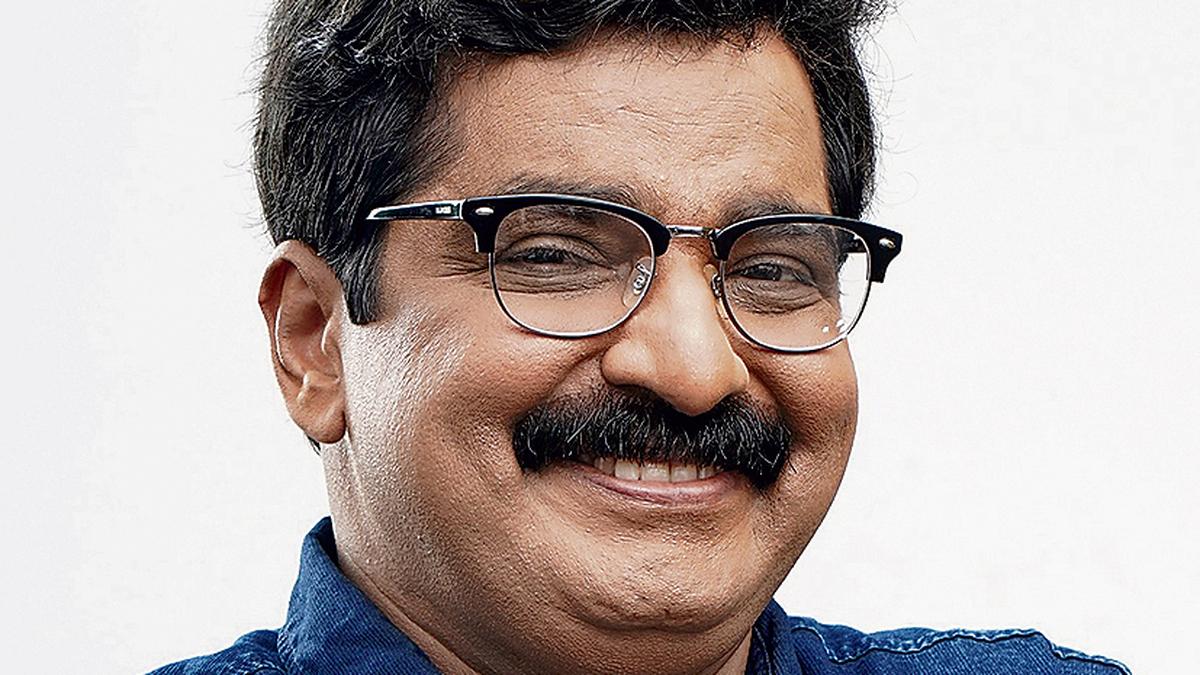
Rhea and Rishika, founders of The Mend Packaging
| Photo Credit: Special Arrangement
By repurposing over 28 types of waste, ranging from coffee husk and cardboard to sugarcane bagasse and even Ayurvedic tablets, The Mend Packaging, a sustainable packaging company based in India, managed by Rhea Kothari and Rishika Reddy, is crafting unique gift boxes. The team works from New York and Hyderabad. That is not all. The company is also experimenting with banana leather, made from fibres extracted from banana crop waste, to create eco-conscious packaging solutions.
Rhea Kothari, who holds a Bachelor’s degree in Economics with a double minor in Psychology and Sociology from Columbia University, leads marketing, sales, and programme management at The Mend Packaging. Before founding the company, she worked at a startup accelerator in New York, followed by a stint in her family’s jewellery business where she juggled multiple roles and gained first hand experience in running a small enterprise. “I was interested in implementing greener practices in both my personal and professional life. I had pushed for sustainable packaging in our family business well before The Mend began, and eventually started exploring ways to take it further,” Rhea shares.

Works of The Mend Packaging
| Photo Credit:
Special Arrangement
Rishika Reddy oversees management, operations, and finance. Prior to co-founding the company, she worked with an electric transportation solutions provider as part of the CEO’s office, where she gained insight into cross-functional operations in a startup environment. “Packaging felt like a natural progression,” she explains. “My family has been running a printing press for over four decades, so it’s something I’ve grown up around.”
Some of the commonly used materials in their packaging include recycled corrugated board, bioplastic, and rigid board. Rhea elaborates, “Corrugated boards, made from recycled dry waste, are ideal for logistics and shipping since they’re designed to withstand wear and tear. Bioplastic is derived from a biopolymer of corn starch. Our rigid board is constructed from layered recycled material and offers a more premium finish.”
Before onboarding any new material, the company follows a stringent process. It starts with identifying emerging materials in the market and assessing their foundational attributes — shelf life, printing capabilities, storage requirements, production timelines, and potential “side effects” that could affect the product it is meant to house. Timelines vary depending on the material’s viability.
These innovative efforts are steadily pushing the boundaries of what can be repurposed from waste—and reimagined as design-forward, sustainable packaging.
Why terraform and banana fibre?
Terraform and banana fibre have long been recognised as innovative materials across various industries, but their integration into packaging has been a complex journey, one that demands specialised expertise. Rhea explains, “At The Mend Packaging, we’ve been able to adapt these materials specifically for packaging solutions with the help of expert material innovators.”
“Our research and development efforts conducted in close collaboration with material scientists, polymer experts, and packaging technologists have been instrumental in evolving terraform and vegan leathers into commercially viable packaging materials. The transition from concept to market-ready product has involved extensive testing, prototyping, and iterative refinement, ensuring these materials are not only sustainable but also practical and scalable for broader industry adoption,” she adds.

Some of The Mend Packaging products
| Photo Credit:
Special Arrangement
While recycling does consume water and energy, the overall benefits often outweigh the costs when compared to producing materials from virgin resources, Rhea explains. She breaks down the basics. “Recycling reduces the need for raw material extraction, which means less mining, logging, and drilling — activities that are often destructive to ecosystems. The energy and water used in recycling are significantly lower than what’s required to process raw materials. It also helps reduce landfill waste, which not only saves space but also cuts down methane emissions from decomposing materials, which is a major contributor to climate change. Also, recycling supports a circular system where materials are reused, reducing our reliance on finite natural resources and fostering long-term sustainability.”
Published – May 21, 2025 05:32 pm IST



